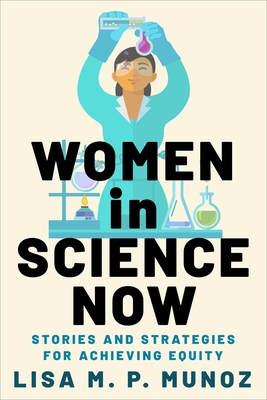
Women in Science Now is an interesting and well written exposition on the state of representation and equity in academia, especially in STEM written and presented by Lisa M. P. Munoz. Released 31st Oct by the Columbia University Press, it's 352 pages and is available in hardcover and ebook formats.
There is a long acknowledged and seemingly intractable disparity of the sexes in STEM fields, men outnumber women, sometimes by huge margins. It's (happily) changing, but very slowly. When I was choosing a career educational path in the early 80s in the USA, I kept getting told over and over that it's a shame that I was good at math and physics because girls couldn't be engineers (so I became an engineer).
The author/editor does a good job of visualizing and describing the disparity and the systems which resists a more equitable workforce in the future -as well as- offering some insights for potentially successful ways to compensate for educational and workplace systems which are passively designed to favor males over females. She has curated essays and personal recollections from female academics and scientists about education, workplace dynamics, eyebrow raising interview questions, and experiences.
Probably the most valuable parts of the book are written as a guide toward possible solutions for mapping, addressing, and fixing some of the issues facing the sciences including workplace environments, mentorship, recruitment, visibility and other issues. These massive and intractable problem areas are broken down into much smaller subchapters and essays and readers will likely come away with a surprising sense of positivity and hopefulness.
There's a lot of work to be done but it's definitely not all bleak and it's getting better is the overall takeaway. The book is fully annotated throughout and the bibliography and reference lists will provide readers with lots of further reading. It's an academic treatise, but perfectly layman accessible and not written in impenetrable academic language. It would definitely make a good support text for classroom use (as well as a good and important read for teachers and professors, mentors and career advisors).
Five stars. The actual essays are collected from a wide variety of scientists and, as such, are varied in style and form, but overall they form a fairly cohesive whole. This would be an excellent choice for public or school library acquisition, as well as home use.
Disclosure: I received an ARC at no cost from the author/publisher for review purposes.
No comments:
Post a Comment